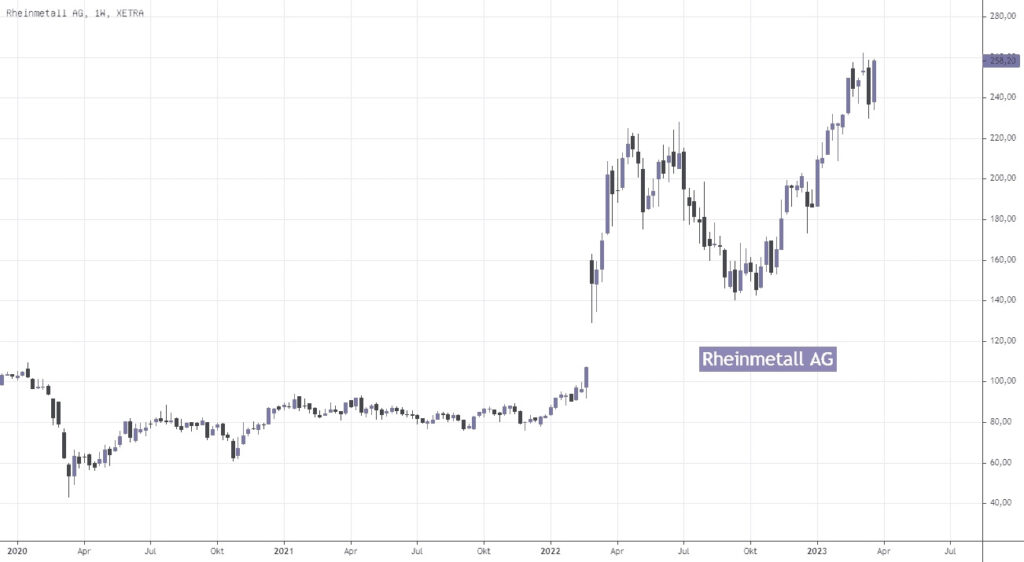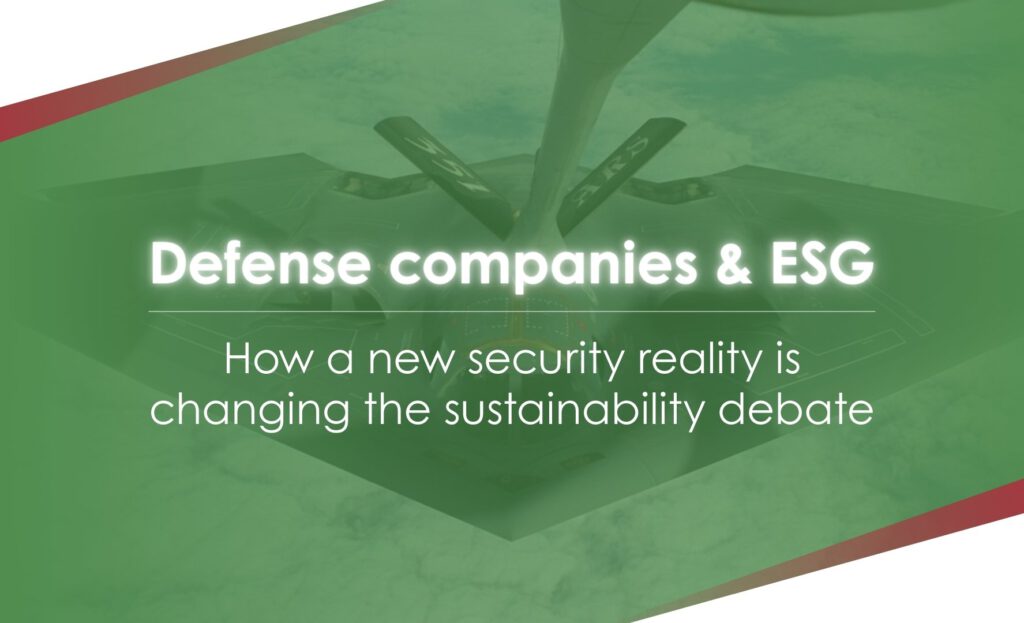What was unthinkable just a few years ago is now reality: defense companies are increasingly considered ESG-compliant. The security shift – triggered by the war in Ukraine and geopolitical instability – is forcing investors, ESG managers, and banks to rethink their approach. Security is now considered a component of sustainability.
From exclusion to investment: The ESG turnaround in defense companies
For a long time, defense companies were generally considered ineligible for investment under ESG criteria. Armaments were associated with war, violence, and ethical conflicts—and thus consistently excluded.
But this perspective is changing:
- Security is considered a basic prerequisite for a stable society.
- Defense is understood as a contribution to the preservation of democratic systems.
- The UN Sustainable Development Goal SDG 16 (“Peace, Justice and Strong Institutions”) is increasingly being used to legitimize investments in conventional armaments.
The result: Companies such as Rheinmetall, Saab, Hensoldt and BAE Systems are becoming the focus of sustainable investors.
Who is investing again – and why?
In many countries, ESG-oriented funds have revised their exclusion criteria. The trend began in Scandinavia and is now continuing in Central Europe:
- Swedish pension funds such as the AP funds are again holding shares in Saab.
- KLP, Norway’s largest pension fund, relaxed its weapons filters.
- French asset managers are increasingly classifying defense as “socially sustainable infrastructure.”
ESG rating agencies such as MSCI and Sustainalytics are also currently examining how they can re-evaluate conventional arms companies without compromising their principles. In doing so, they are increasingly differentiating: Companies that supply exclusively to democratic states and do not produce controversial weapons systems are assessed more leniently.
Capital flows, stock market values and a symbolic rise
The markets have already reacted – strongly:
- Rheinmetall was included in Germany’s leading DAX index in 2023.
- Defense stocks are experiencing strong price gains worldwide.
- Institutional funds are flowing back into the defense industry – in some cases for the first time in years.
This development is not only a reaction to geopolitical risks, but also an expression of a new social consensus: armaments are not unethical per se – they can, under certain conditions, be part of a responsible ESG strategy.

What does this mean for financial institutions and ESG teams?
The changes present banks, fund houses and ESG advisors with new challenges – but also with opportunities.
1. Revise ESG guidelines
Criteria like these help in a differentiated assessment:
- Exclusion of controversial weapons (e.g., cluster bombs, chemical weapons)
- Authorization of conventional defense systems compatible with NATO/EU law
- Transparency obligations regarding end-use and customer states
This creates clear, ethically acceptable framework conditions.
2. Conduct honest and differentiated customer dialogue
Many investors have a clear ethical stance. Therefore, it is important:
- Proactively informing why certain criteria are changing
- Assessing political and social developments
- Offering alternatives (e.g., continuing to include no arms in portfolios)
Goal: Create trust, not justify.
3. Building ESG expertise
ESG is not a rigid set of rules, but a changing system. Advisory teams should be regularly trained to:
- Be able to understand regulatory developments (e.g., the EU taxonomy)
- Be able to confidently discuss controversial topics with customers
- Be able to sharpen your argument: Sustainability ≠ naivety
4. Develop new products and services
Change also gives rise to marketable ideas:
- Security & Resilience Thematic Fund
- ESG scoring models with a focus on security aspects
- Webinars, workshops, and white papers on ESG & Defense
Those who build up expertise here early on gain a strategic advantage.

Conclusion: ESG is on the move – and we accompany the change
The case of “armaments and ESG” exemplifies the dynamic nature of sustainable investment. What was categorically excluded yesterday is now viewed with greater nuance—and perhaps considered necessary tomorrow.
Financial institutions that wisely adapt their policies, advice, and products now can rethink ESG – responsibly, realistically, and future-proof.
Whether it’s an ESG policy update, product development, or customer communication: We support you – banks, fund providers, and advisory teams – in competently shaping this transformation with clear frameworks, in-depth analysis, and practical experience.







